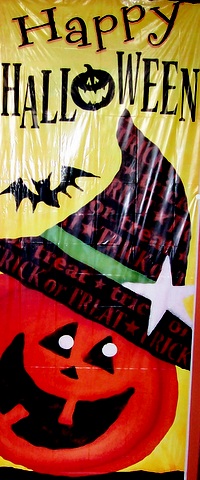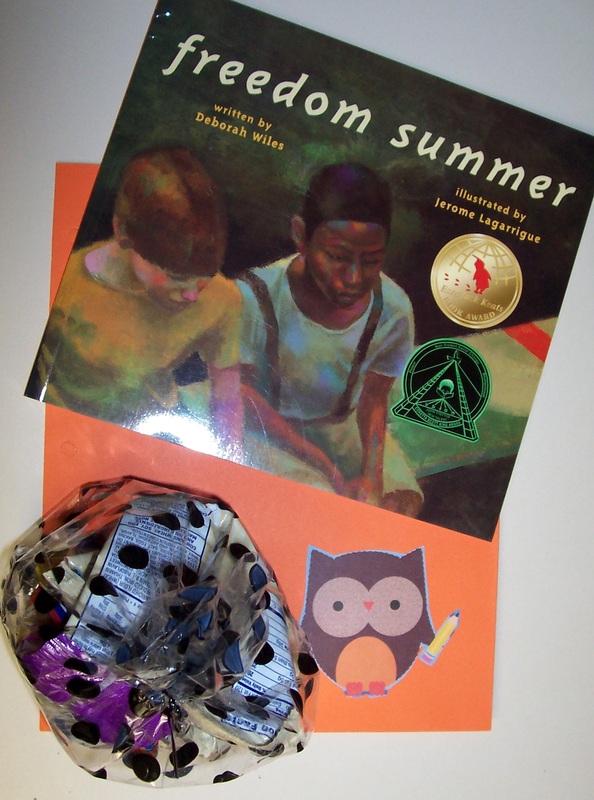 For the next few months, maybe longer, I'll be posting once a month and I celebrate the freedom to do this because . . . I don't have a book to promote! That's right. There are some positives to not having a book deal. At a local SCBWI event, writing coach, Joyce Sweeney, encouraged us nonpubs to embrace this time. Published authors in the room shared knowing glances and smirked. They remember their prebook days with fondness: no agent and publisher prodding you to do backflips and handstands to sell your book; no full calender of signings and school visits; no mad scramble to lure readers on blog, Facebook and Twitter. Joyce offered many sage morsels that day. I sat in a back corner, womanning the sign-in table, and though Joyce couldn't see me, twice her words struck like a bullet. First, she talked of focusing on your sweet spot as a writer. She said often new childrens' writers explore every avenue from picture book to young adult and that's helpful if you use it to find your strengths. Then, it's time to concentrate. If it's PBs, start cranking out stories like a factory. If it's middle grade or YA, write short stories and work your way up to novels. I've been writing for four and a half years and I've juggled PBs, MG and YA for almost the entire journey. I've always felt that my voice is better suited to MG and YA but the artist inside urged me to try PBs. I've been blessed to belong to the best PB group (in my biased opinion) in Florida, Rob Sanders' PB&J, Picture Books and Java. They are my writing family. Perhaps my attachment clouded my reasoning because from the beginning, I've heard: "Your voice is too old for PBs" (my words not there's. They were always much kinder.) So, Joyce's advice hit the target. I needed to quit struggling with PBs and focus on my novels for older children. A small part of me rejoiced, the sensible writer who fought the artist for my attention. A large part of me silently wailed at my inevitable resignation from PB&J. As I recovered from that shock, Joyce addressed branding and how not focusing on one genre can affect new writers. She cited a writer who had a pending deal on a MG novel. The interested agent (or editor, I can't remember which) Googled the writer and up pops a website featuring the author's self-illustrated PBs. The agent wasn't interested in representing PBs so she turned the novel down. Joyce continued, saying agents and publishers want to see an author committed to building devoted readership by producing consistent books. OUCH! I slunk down in my chair, feeling as if a path had cleared from Joyce to my seat and all eyes targeted me. My website is all over the place. I tried to focus it on writing but . . . well, look at it; there's a giant, clothed rabbit hosting the home page! And even though there's only one portfolio page, the art is what viewers notice. No one ever comments on the writing. So, guess who will be revamping their website? One day, I hope to have agents and publishers Googling my name and when they do, I want to be ready. Until then, I'm enjoying my freedom. Today, I don't have to worry about branding or book promoting. The Bible says there's a time for every season. Rejoice fellow nonpubs! This is our season of learning to write the best book we can. Since, I'm only posting once a month, I'm throwing everything I've got here. If you're in Florida, Tennessee or Missouri, please watch for events promoting Rob Sanders' debut PB, Cowboy Christmas. The launch party is Saturday, Nov. 3 at Inkwood Books in Tampa and you don't want to miss it. Rob's hired cowboy strummers and there's sure to be tasty refreshments. Happy Halloween everyone. Wishing you treats, no naughty tricks!
2 Comments
 Ingredients: One Potent Teacher A cup of super organizers Nearly two dozen passionate writers Magic Beans Directions: Mix well in a cozy Panera's room; season with a spicy lunchtime presentation and two bean ceremonies. Sprinkle with goodies. Saturday before last, I was privileged to participate in my second Joyce Sweeney workshop. Joyce is the author of fourteen young adult books, plus short stories and poetry. Fifteen years ago, she began blessing Florida writers by sharing her knowledge through classes and workshops. This past April, she came to Tampa Bay for the first time to teach a character workshop. Many of the people from that workshop attended the recent event so we had already begun to bond. Then Joyce spread a fairy godmother spell on the room, transforming us to entranced children in the best kind of school. Joyce focused on Voice this time. She broke it down to tone, diction, detail, imagery and syntax and she used the first pages we brought to illustrate good examples of each. As someone whose first pages have been used for examples of problems, it was gratifying to hear mine praised for strong imagery. I applaud Joyce for taking this positive approach and I sensed I wasn't the only one who appreciated it. Writers need critical feedback to grow but I'm not sure we grow from public humiliation, no matter how sensitively it's delivered. The room glowed as Joyce pointed out the strengths in the pages. The writing was fantastic and the examples goaded me to reach higher. I thought I wrote pretty good detail until I heard the description of a bus scene that provoked all five senses. Joyce asked us to explore our strengths and weaknesses. My greatest weakness is syntax. That's prompted me to pull Strunk and White off the shelf. Joyce also recommended Eats, Shoots and Leaves. During breaks, we were honored to be part of two ceremonies. Joyce presents a magic bean (from Costa Rica, don't you know!) to writers she mentors when their first book is published. The day of the workshop, she honored the thirty-seventh mentee, Shannon Hitchcock, author of The Ballad of Jessie Pearl. In turn, Rob Sanders honored Joyce's mentorship by presenting her with a can of beans (pinto, I think) and a copy of his new book, Cowboy Christmas. At lunchtime, Dr. Joan Kaywell thrilled us with a presentation about the Hipple Children's and Young Adult Literature Collection at the University of South Florida. That deserves a blog post by itself and I'll try to get to it soon. Then there were goodie bags, owl folders holding workshop material and chocolate-covered owl pretzels. It was impossible not to feel like a kid again! By the end of the day, the writers in that room had risen like a yeasty loaf of bread, stuffed with new knowledge, commraderie and appreciation for the hard work of others. Rob Sanders and his crew (you know who you are!) organized this do and it cooked like teflon. To top the day off, there were numerous drawings for books. I won Freedom Summer by Wiles and Lagarrigue. If you ever have a chance to attend a Sweeney workshop, I urge you, go! If not, you can still benefit from her mentoring through critique services at her website. I recently tried to explain voice to a non-writer. I mangled the subject badly, prompting this post . . . an attempt to clarify my understanding of the term.
Publishing pros call for books with strong voice, a voice readers can relate to. For me, that voice is the narrator in my head that begins each story (for simplicity, let's assume the main character is always the narrator). The MC whispers a scene. One scene leads to another and as the story develops, so does the character. Their voice grows stronger, more distinct. By the end of the book, I know their history, their quirks, their secret dreams and greatest fears. I know how they talk and move. Most importantly, I know how they view and react to the world. The challenge for writers is to translate the MC's point of view into words. From the opening sentence on the first page, the narrator is on stage. Joan Bauer's Hope Was Here starts: Somehow, I knew my time had come when Bambi Barnes tore her order into little pieces, hurled it in the air like confetti, and got fired from the Rainbow Diner in Pensacola right in the middle of lunchtime rush hour. That sentence defines the narrator as a keen observer and gutsy optimist who's looking for opportunities. I also sense she has a sense of humor from her colorful description of the ticket-shredding incident. Hope's personality, her voice, comes across loud and clear and I know from the opening, I'll love seeing this story through her eyes. Protagonist's voices rise from a writer's experiences and you could say, each are versions of the writer's personality. But in order to fully realize the MC, writer's must be willing to face their own fears, prejudices, and fantasies; to explore unknown territory. The narrator should be free to have habits we dislike and think things we wouldn't. Their voice should speak the story without interference. Writers can't be cowards. Last year, a contemporary book I was working on stalled when I faced scenes I wasn't ready to write. Skimming through them with a watery version of the MC's point of view would have been a waste of time. I've restarted the book and I'm gathering courage. If I can't be true to the voice, I won't have a story worth telling. In children's books, voice must be age appropriate. Many picture book writers capture the youngest readers with lovable characters who do laughable things. Middle grade readers are still dependent on their parents but they expect protagonists who solve their own problems without adult assistance. Middle grade voice is my favorite . . . straddling vulnerabilty, awkwardness, and the edge of maturity. Older teens are strongly influenced by hormones and the need to forge their own path. Most MC's in young adult books deal with love on some level and independence. The young adult voice runs the gamut from sweet to dark and gritty. Unlike those who write for adults, children's writers must tailor their story through a voice authentic to the intended reader. One last thing about voice. Once the book is published, readers bring their voice to the page and how they experience the story is out of your control. At an SCBWI conference, author and creative motivational speaker Lisa McCourt shared her poem about the reader's voice. In it she says : . . . It is your voice saying, for example, the word barn that the writer wrote but the barn you say is the barn you know or knew. |
AuthorI write middle grade and young adult books with a magical twist, and I'm represented by the fabulous Leslie Zampetti at Open Book Literary. Writer Websites
Augusta Scattergood Maggie Stiefvater Rob Sanders Fred Koehler JC Kato Sarah Aronson Kelly Barnhill Linda Urban Kate DiCamillo Jacqueline Woodson Helpful Links SCBWI Agent Query Lorin Oberweger - Freelance Editor Search BlogArchives
May 2020
Categories
All
|

 RSS Feed
RSS Feed
